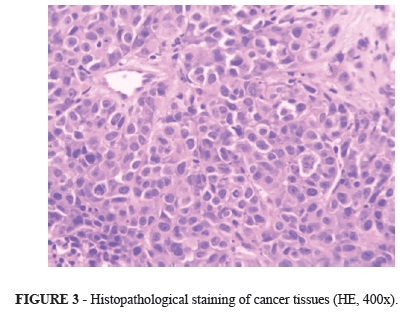PURPOSE: To investigate the feasibility of interventional lipiodol embolism and multigene therapy in combination with focal chemotherapy in the treatment of VX2 liver cancer in rabbits. METHODS: Forty five rabbits with cancer larger than 2cm in diameter were randomly divided into five groups (n=9 per group). In Group 1, animals were treated with 0.9% sodium chloride. In Group 2, animals received lipiodol embolism. In Group 3, animals received lipiodol embolism and p53 gene therapy. In Group 4, animals received lipiodol embolism and TK/CD gene therapy. In Group 5, animals received lipiodol embolism and p53 and TK/CD gene therapy. Ultrasonography and CT were performed before and at ten days after interventional therapy. RESULTS: The VX2 model of liver cancer was successfully established in rabbits and interventional therapy smoothly performed. At ten days after interventional therapy, significant difference in the tumor volume was noted among five groups (p<0.05) and different treatments could inhibit the cancer growth. The inhibition of cancer growth was the most evident in the Group 5. Factorial analysis revealed gene therapy with p53 or TK/CD and lipiodol embolism independently exert significantly inhibitory effect on cancer growth. In addition, the suppression on tumor growth rate was the most obvious in the Group 5. CONCLUSIONS: Combination of gene therapy with lipiodol embolism can effectively inhibit the cancer growth and prolong the survival time. These findings demonstrate the effectiveness of multigene therapy in combination with lipiodol embolism in the treatment of liver cancer.
Liver Neoplasms; Genes, p53; Gene Therapy; Rabbits





